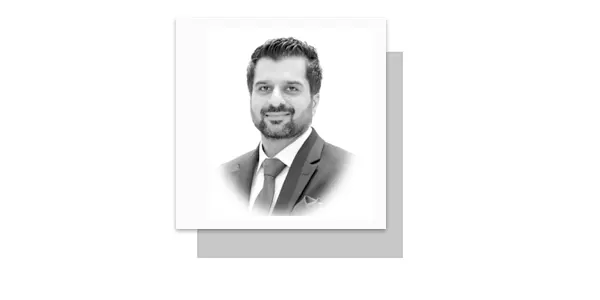PICTURE this: a person in a global region awakes to a storm, finding roads underwater, no electricity, halted emergency services and people pleading for the government’s help with necessities.
Consider, too, another person in a different part of the globe enduring an unbearable heatwave, with wildfires and drought jeopardizing their community’s survival.
If the world remains willfully ignorant of its failures to achieve sustainable development, these scenarios will become a reality.
For sustainable development, justice must prevail among social groups, countries and in humanity’s interaction with nature.
The Brundtland Commission’s 1987 definition of sustainable development is a development that fulfills current needs without jeopardizing future generations’ ability to meet theirs.
Many obstacles stand in the way of sustainable development.
In this respect, human actions have resulted in the unsustainable use of natural resources.
The UN Environment’s 2019 Global Resources Outlook reports that extraction has tripled since 1970, causing over 90% of biodiversity loss and water stress.
A doubling global material use to 190 billion tonnes by 2060 is anticipated, further harming the environment.
Furthermore, the global arms trade and warfare are major impediments to sustainable development.
Wars cause millions to be displaced, devastate economies and redirect resources away from crucial areas like healthcare, education and environmental protection.
SIPRI reports $2.2 trillion in global military spending for 2023, a stark contrast to insufficient climate action, undermining sustainable development.
In addition, the UN’s 17 SDGs intend to tackle global inequalities; however, progress is slow.
Insufficient funding hinders progress on Goals 10 (reducing inequality) and 13 (climate action), while persistent fossil fuel use worsens economic disparities and environmental damage.
Eighty percent of global energy comes from nonrenewable sources, highlighting the world’s continued reliance on fossil fuels.
This dependency renders sustainable development unrealistic and exacerbates climate change risks for developing nations, who disproportionately suffer from global inaction on sustainability.
The regrettable truth is that economic control trumps sustainable development for many wealthy and powerful global leaders.
A new Oxfam International study reveals that the top 1% control nearly 50% of global wealth, which underscores systemic inequalities and obstructs sustainable progress.
Wealthy owners of companies, airlines and factories, with real estate holdings, jeopardize sustainable development to maintain their wealth.
Sadly, numerous global leaders prioritize immediate political advantages over enduring sustainability.
The World Economic Forum reports that just 30% of global governments possess SDG-aligned policies, with electoral cycles prioritizing short-term gains over long-term sustainability.
In developing countries, the fight for survival overshadows sustainable practices.
Over 700 million people endure extreme poverty, surviving on less than $2.15 a day, as reported by the World Bank.
Poverty undermines the idea of sustainability.
For many, sustainability is a distant concern without education and economic stability.
Moreover, modern consumer culture has resulted in the overuse of resources.
The Global Footprint Network states that we’re using resources as if we have 1.7 Earths.
Wealthy nations, who consume the most, are most responsible for global sustainability issues.
Lastly, the UN’s attempts to enforce sustainable policies are hampered by a lack of international consensus.
Powerful nations frequently ignore environmental pledges, exemplified by the U.S.’s exit from the Paris Agreement.
The world needs sustainable practices to continue its safe existence.
Without sustainable development, humanity faces a devastating future.
A major obstacle is the insufficient consensus and willpower to adopt sustainable methods.
As an example, investing in renewables like solar, wind and hydro reduces our reliance on fossil fuels.
But the fossil fuel industry exerts significant political influence, hindering the adoption of green policies for sustainable development.
Leaders also capitalize on the population’s lack of understanding of sustainable development.
Integrating sustainability-focused curricula in schools can cultivate early awareness and address this challenge.
Furthermore, public awareness campaigns must highlight the need for environmental protection and sustainable consumption.
This requires responsible leadership to spearhead sustainable initiatives.
Developed nations, having exploited Earth’s resources at the expense of sustainable development, bear significant responsibility for assisting developing nations through green technology transfer and sustainable infrastructure investment.
To help lower-income countries transition to renewable energy, initiatives like the Green Climate Fund (GCF) need to be expanded.
This must be complemented by local sustainability initiatives like urban farming, community recycling and conservation projects.
Indigenous knowledge and traditional conservation practices should be incorporated into global sustainability plans.
Global organizations such as the UN need reform to better enforce commitments to sustainable development.
A more inclusive UN can make better decisions for sustainable development.
Lastly, governments and businesses ought to promote sustainable products, responsible consumption and minimalist lifestyles.
Manufacturing and retail’s environmental impact can be significantly lowered by adopting zero-waste policies.
The powerful global elite, however, is the main impediment to implementing the aforementioned reforms.
Elites exist in every region, from developed to developing nations.
The crucial sustainable development goals are achievable, but only with true global commitment.
Envision a world where unexpected, unwanted weather phenomena are confined to storytelling.
Picture a world where humanity and nature thrive in perfect harmony, free from the dangers of unsustainable development.
This necessitates a united global effort from world leaders.
For the noble cause of global unity and safety, we must sacrifice and commit to overcoming geographical boundaries and prioritizing peaceful coexistence.
The planet is warning the world: choose sustainability or face unimaginable destruction from unsustainable practices.
Consequently, humans choose what the future will be.
Humanity’s refusal of sustainable practices will trigger a powerful response from the planet.
That’s how nature operates.
—The writer is an educationist and a Commoner from 44th Common, based in Sargodha.
(waqarhassancsp@gmail.com)


















